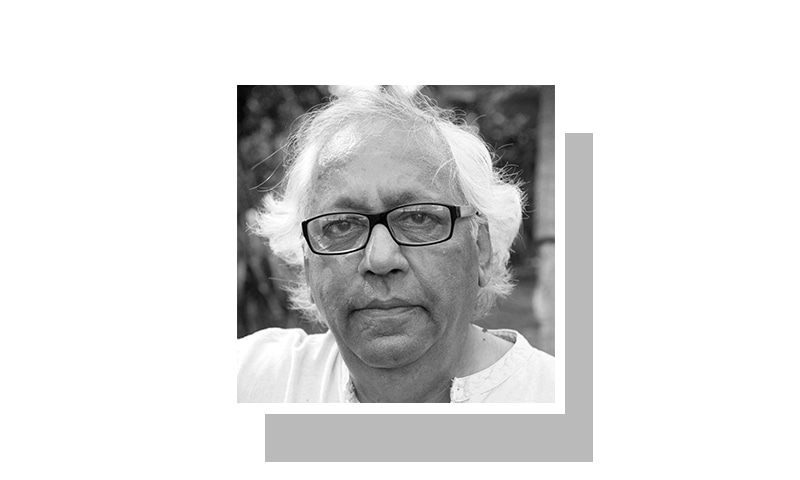THIS last week witnessed the gathering of the great and the good in Riyadh to pay their respects to the recently departed King Abdullah, and to suck up to King Salman, the newly crowned monarch.
Next month, many of these same worthies will meet in Washington to discuss measures to counter terrorism.
How many lives have to be lost before Western leaders finally connect the dots between the Wahabi/Salafi ideology being pumped out by the desert kingdom and the killing fields of Iraq, Syria, Nigeria, Afghanistan and Pakistan?
It was no coincidence that many of the 9/11 suicide bombers and planners, as well as Osama bin Laden, happened to be Saudi citizens. Over the years, a large body of evidence has been built up by diplomats, journalists and intelligence agencies pointing to the nexus between jihadi terror and extremist elements in Saudi Arabia. And yet King Abdullah’s death is being considered a huge loss.
In his tribute, President Obama went so far as saying of Abdullah’s deeds: “They will outlive him as an enduring contribution to the search for peace in the region.” Really? Since when has the architect of a project that has destabilised much of the Muslim world deserved such accolades?
Saudi support has blocked change in the Middle East.
In 1924-25, Ibn Saud, the founder of the current Saudi dynasty, defeated the Hashemites and seized control of Saudi Arabia with the help of the British. According to contemporary accounts, over the next seven years or so, tens of thousands were killed, many more had a limb amputated and up to a million fled Saudi Arabia.
So when we deplore the actions of the Islamic State, we need to remember who provided them with a model for conquest. And when we are repulsed by their public beheading of prisoners, we need to keep in mind the fact that on Fridays, those given the death penalty by Saudi Arabia’s opaque and draconian legal system are decapitated in public squares.
In a Faustian pact, the Saudi monarchy is left unchallenged by the country’s ultra-conservative clergy, provided it does not try and bring the country out of the 7th century. Meanwhile, millions of dollars are sent from private and public sources to madressahs in mostly poor Muslim countries.
Saudi Arabia, among some other Arab states, also funds mosques in Western cities where many clerics, whose salaries are reportedly paid by Riyadh, preach hate against the West and non-Wahabi sects. While the official Wahabi clergy stick to a literalist, joyless interpretation of Islam, they overlook the injunctions against rule by despots. They have thus provided the Saudi royal family with a spurious legitimacy in exchange for the tight control they wield over internal social policy. The royal family and the clergy are in a symbiotic embrace that has made them a barrier to change.
With an army of some 7,000 princes to keep in style, the House of Saud has a strong incentive to maintain a lucrative status quo. This creates their leverage with Washington, London and Paris: with the world’s biggest oil reserves, Saudi Arabia has been ensuring a steady supply of oil to the global markets.
The other factor that keeps leaders like Obama and Cameron onside is the rich market for arms the kingdom has become over the years. These purchases, often accompanied with allegations of vast bribes, generate jobs as well as obscene profits.
Finally, the ‘stability’ repeatedly evoked in the recent eulogies to Abdullah refers to his role in leading the fight to roll back the Arab Spring. From Egypt to Bahrain, it has been Saudi money and political support that has blocked change. Simultaneously, however, Saudi Arabia has also reportedly financed extremist rebel groups in Syria.
But there are signs that the Saudis are losing some of their leverage in Washington. When Obama decided against launching an attack on Syria, it was a big setback for Riyadh. For King Abdullah, it was a humiliating reminder that his country is no longer the highest American priority.
Another reality check came when Obama refused to be led into an Israeli-inspired attack on Iran to destroy its nuclear programme and ambitions. A senior Saudi had been quoted in a leaked US diplomatic cable urging the Americans to “cut off the serpent’s head”.
But Saudi support for General Sisi has been directly helpful to Israel as Egypt has acted vigorously against Hamas, shutting down virtually all the tunnels that had been a lifeline for the beleaguered Palestinians virtually imprisoned in the tiny enclave of Gaza.
Thus far, the Saudi government has bought off its people by giving them huge subsidies and many free services. But with falling oil prices, it may not be able to forever bribe the young to stay quiet. Its Shia population in eastern Saudi Arabia is growing increasingly restless under unending discrimination and repression. And no system, even one as backward as Saudi Arabia’s, stays static forever.
Published in Dawn, January 31st, 2015
On a mobile phone? Get the Dawn Mobile App: Apple Store | Google Play
































